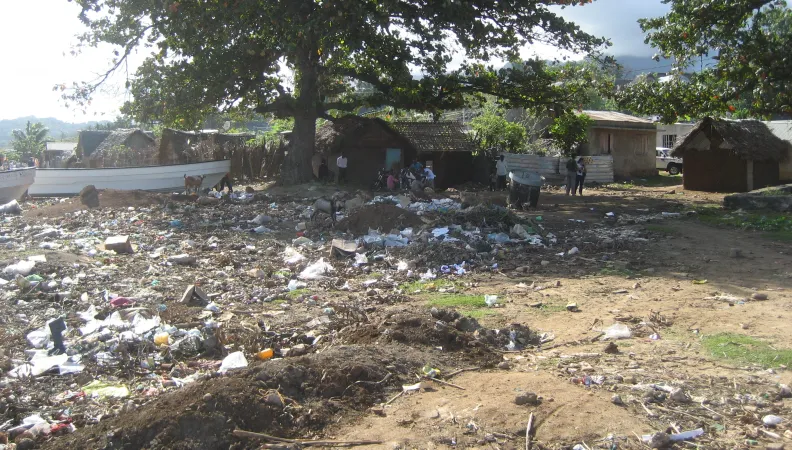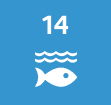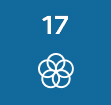Share the page
Better understanding plastic pollution and strengthening the circular economy ( ExPLOI)
Project


-
Project start date
-
Status
In progress
-
Estimated date of project termination
-
-
Project financing date
-
-
Financing duration
-
5 years
-
Type of program
-
FFEM
-
Global financing amount
-
6700000 €
-
FFEM financing amount
-
1700000 €
-
Project lead member institution(s)
-
AFD, Ministry of the Ecological Transition, Biodiversity, Forests, Sea and Fisheries
-
Country and region
-
Comoros, Madagascar, Seychelles, Mauritius
-
Type of financing
-
Grant
-
Partners
-
AFD
-
Beneficiaries
-
IOC (Indian Ocean Committee)
-
Type of beneficiary
-
International organisation


Thousands of tonnes of plastic are dumped every year into the oceans, with no precise traceability. The Indian Ocean Plastic Expedi-tion (Expédition Plastique Océan Indien - ExPLOI) aims to combat plastic pollution across the region by helping influence the behaviours and engagement of stakeholders, in particular companies, producing shared scientific knowledge, raising awareness and supporting the development of virtuous practices and innovations in reducing, re-using and recycling.
Context
Ocean pollution by plastic waste is a worldwide issue for the global environment, affecting every marine habitat . The impacts are many, including on the environment and health but also on economic activity (tourism, transport, fishing) and recreation. In addition, there are no international agreements or treaties to combat plastic pollution. Furthermore, considerable disparity exists between IOC member states regarding the extent of imperative and control arising from national regulation relating to waste.
Description
The IOC is an intergovernmental organisation bringing together the Comoros, Madagascar, France, Mauritius and the Seychelles. Founded in 1984, the IOC is based in Mauritius. With the aid of its financial partners, it implements a range of projects in fields which include sustainable development, health, biodiversity and climate change.
The aim of the ExPLOI project is to combat marine pollution caused by the uncontrolled dumping of plastic waste and to contribute to the development of a regionalised circular economy in the South-West Indian Ocean. It specifically targets delivery of the 3rd pillar of the IOC Plan of Action on waste management, namely the creation of a favourable environment for the development of i) research, ii) education and innovation in reducing the dumping of plastic waste into the sea and iii) the implementation of a concerted policy for the recycling of plastic waste in a circular economy approach at regional scale.
Outcomes
Through its 5 components, the project aims to:
- Improve scientific knowledge of plastic pollution in the Indian Ocean, raise awareness among authorities and populations of the issues related to preserving the marine environment, and contribute to the reduction of plastic pollution and the protec-tion of marine ecosystems.
- Encourage innovation and the dissemination of clean technologies while encouraging IOC member states to tighten their pub-lic policies by building in the prioritisation of waste management methods.
- Create the roll-out of a plastic waste treatment industry at regional level and the creation of green jobs.
- Contribute to the improvement of the communities’ living conditions by reducing plastic pollution.
- Embed a governance framework for the management of plastic waste through the creation of a database on plastic pollution, shared between the IOC member states, which can be used beyond the project using active reinforcement of their surveillance capabilities and setting-up of their observation stations.
Innovative and exemplary features
The project supported by the FFEM is particularly innovative for the region. In fact, by basing itself on an inter-disciplinary approach, the project seeks to demonstrate that scientific research and awareness-raising are just as necessary in changing behaviours as the application of production resources and the involvement of economic stakeholders. Another novel feature is the collaboration of such a broad spread of stakeholders (administrations, public & private enterprise, NGOs, schools, artists etc.) around a common issue.
In addition, the activities implemented for raising awareness, particularly tackling marine ecology issues from a health perspective, also demonstrate the novel and exemplary character of this programme. Similarly, the unprecedented region-wide implementation of exper-imental platforms for developing industrial processes should give impetus to local research and development.
Sustainable Development Goals
ODD14 Life below water

ODD17 Partnerships for the goals



